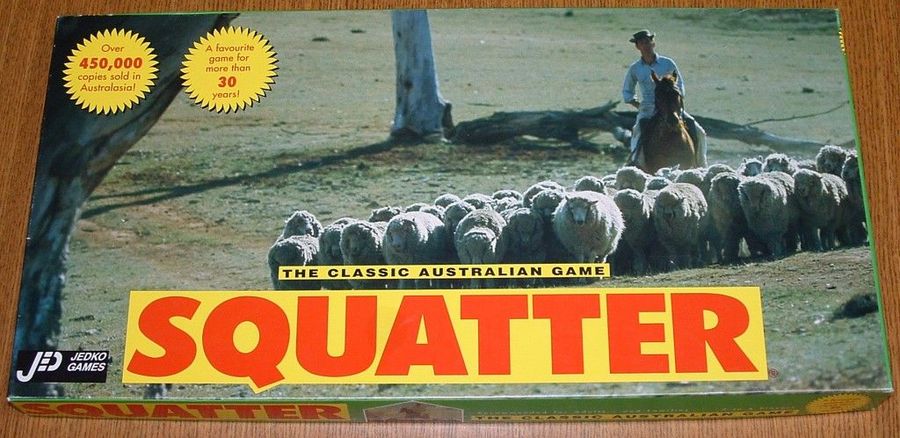Squatter (1962) Board Game
Squatter is a classic board game that was first released in in 1962. It was designed by Robert C. Lloyd and is published by multiple companies including Jedko Games, John Sands Pty Ltd, and Milton Bradley. The game falls under the categories of Animals, Economic, and Farming, and it involves gameplay mechanics such as Commodity Speculation, Roll/Spin and Move, Stock Holding, and Trading. Squatter is designed for 2-6 players, with the best experience being with 3-4 players. The game has a runtime of approximately 90 minutes and is suitable for players aged 10 and above.
Game Components of Squatter
How To Setup Squatter
To set up Squatter, each player starts with a sheep station consisting of 5 Natural Pasture paddocks fully stocked with 3,000 sheep. The game board is laid out, and players receive their initial funds and any starting cards. The objective is to manage the sheep station effectively, navigating through various challenges and opportunities as the game progresses.
Gameplay Mechanics and Game Objective
Player Experience
Squatter is designed to be enjoyable for a wide range of players, from children aged 10 and above to adults. The game fosters family interaction, allowing multiple generations to play together on an equal footing. Players can engage in conversations and discussions about the game, which enhances the social aspect of the experience. The game creates winners but ensures everyone stays in the game until the end, making it inclusive and engaging for all participants.
Pros
Cons
Personal Thoughts on Squatter
Squatter is an excellent game for those interested in Australian culture, sheep farming, or anyone looking for a game that combines strategy with real-life challenges. It is particularly suited for families or groups who enjoy interactive and educational gaming experiences. While it may not be as widely known outside Australia, it remains a beloved and enduring part of Australian gaming history. For those considering introducing their children to Australian rural life and the wool industry, Squatter is an informative and entertaining choice.
We are supported by our audience. When you purchase through links on our site, we may earn an affiliate commission, at no extra cost for you. Learn more.

